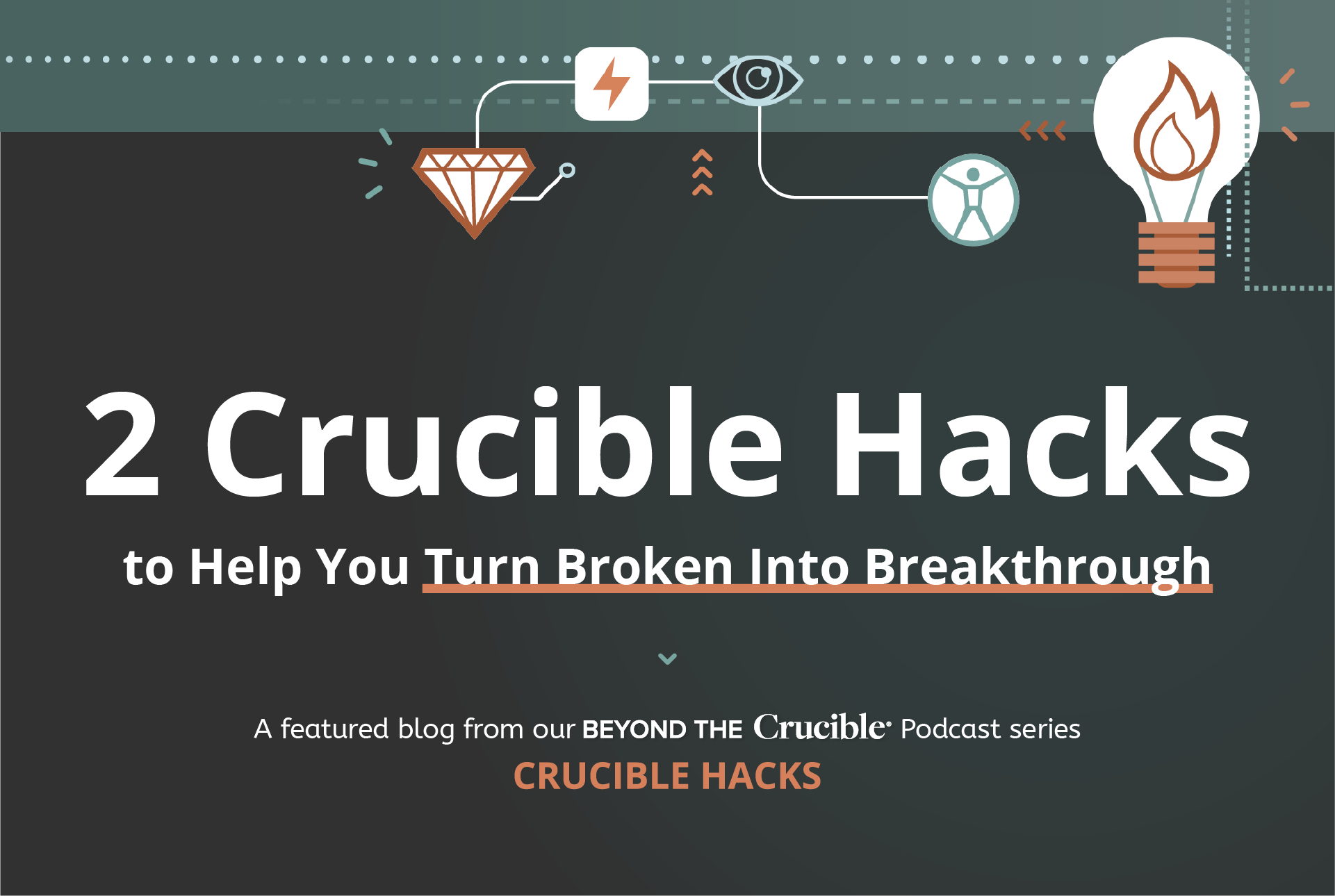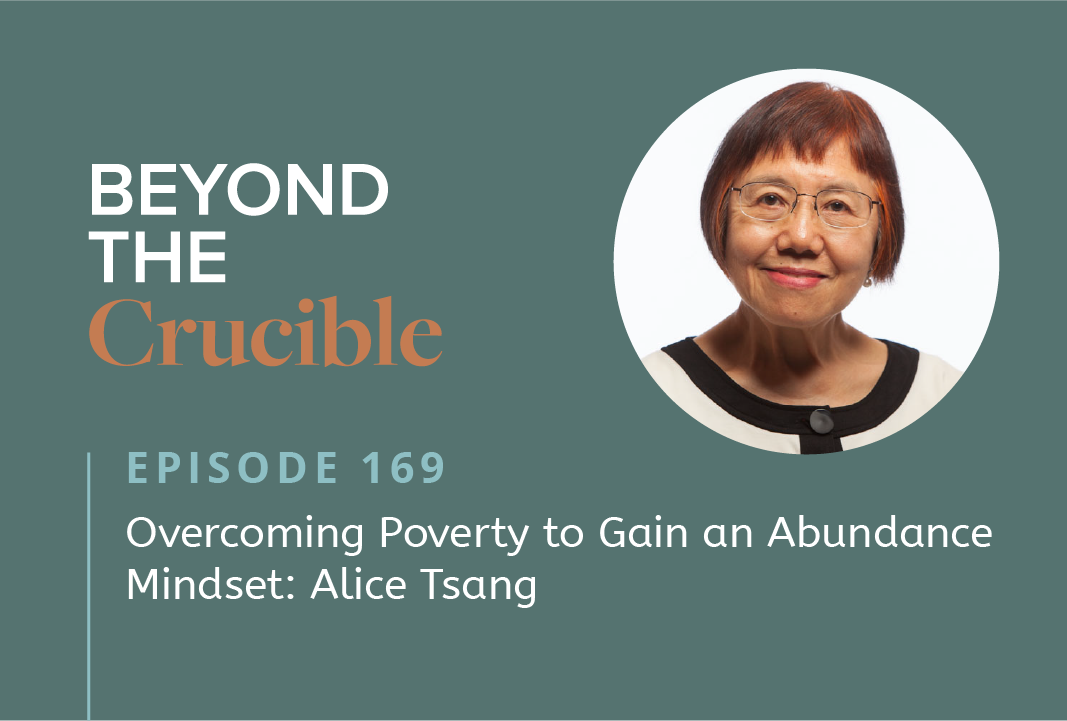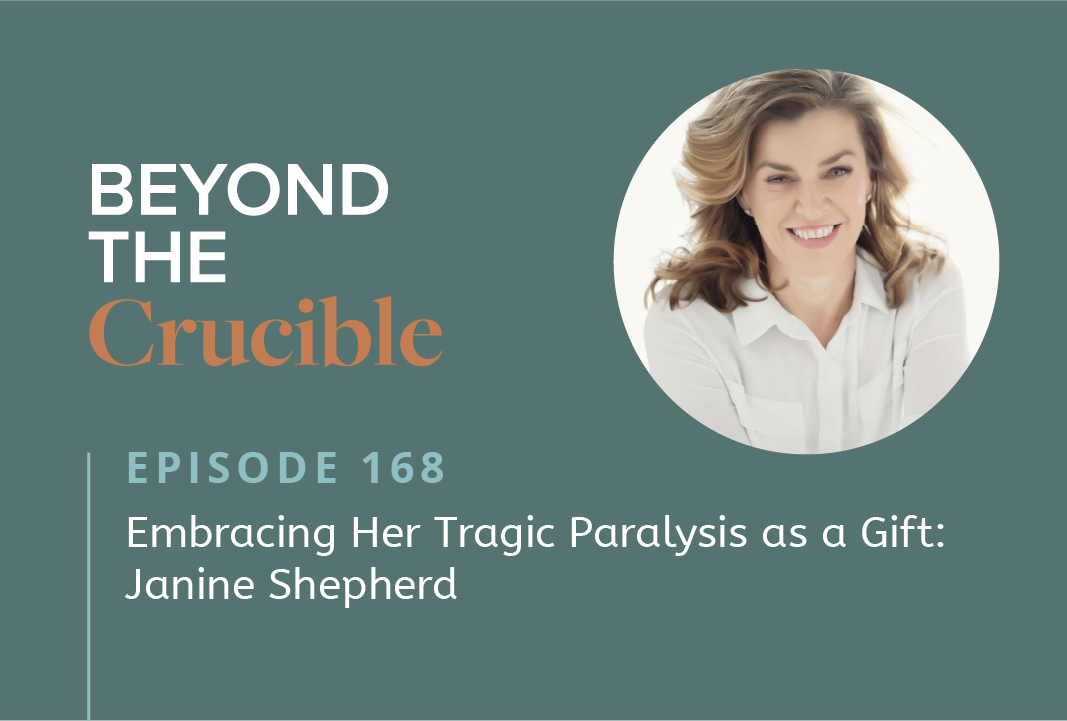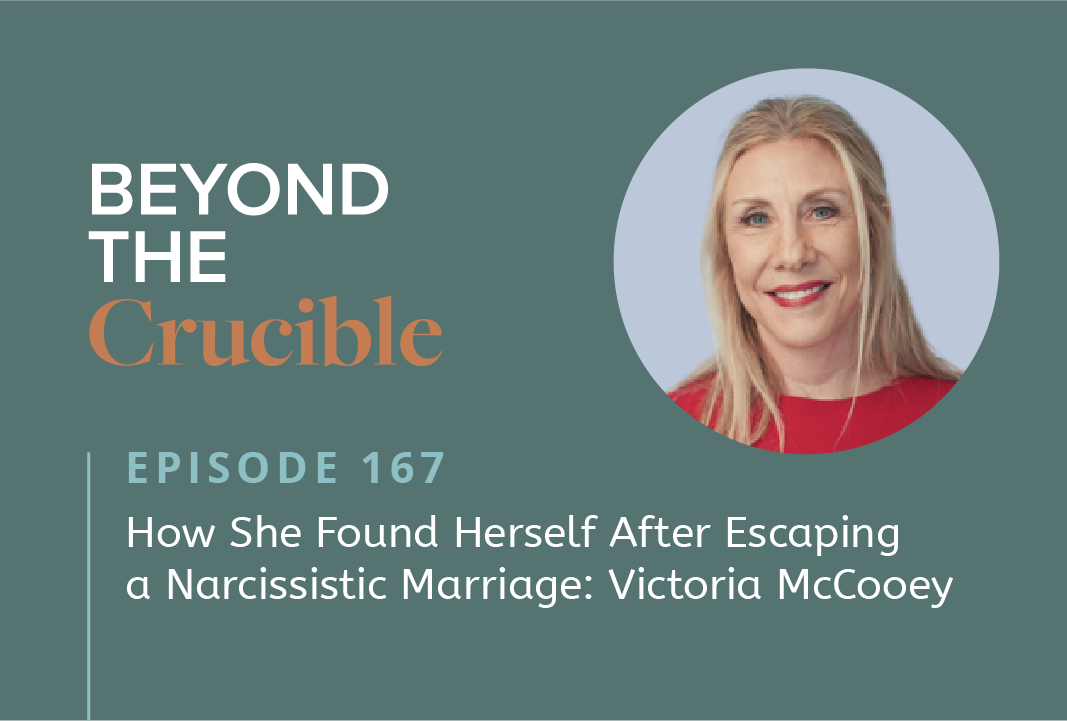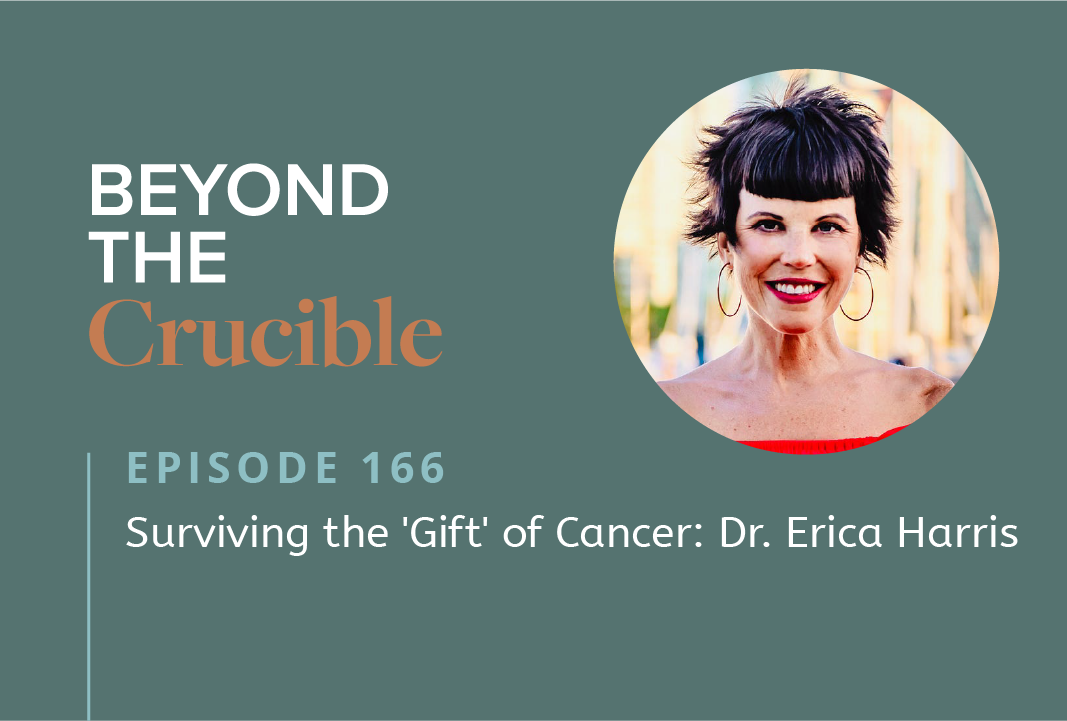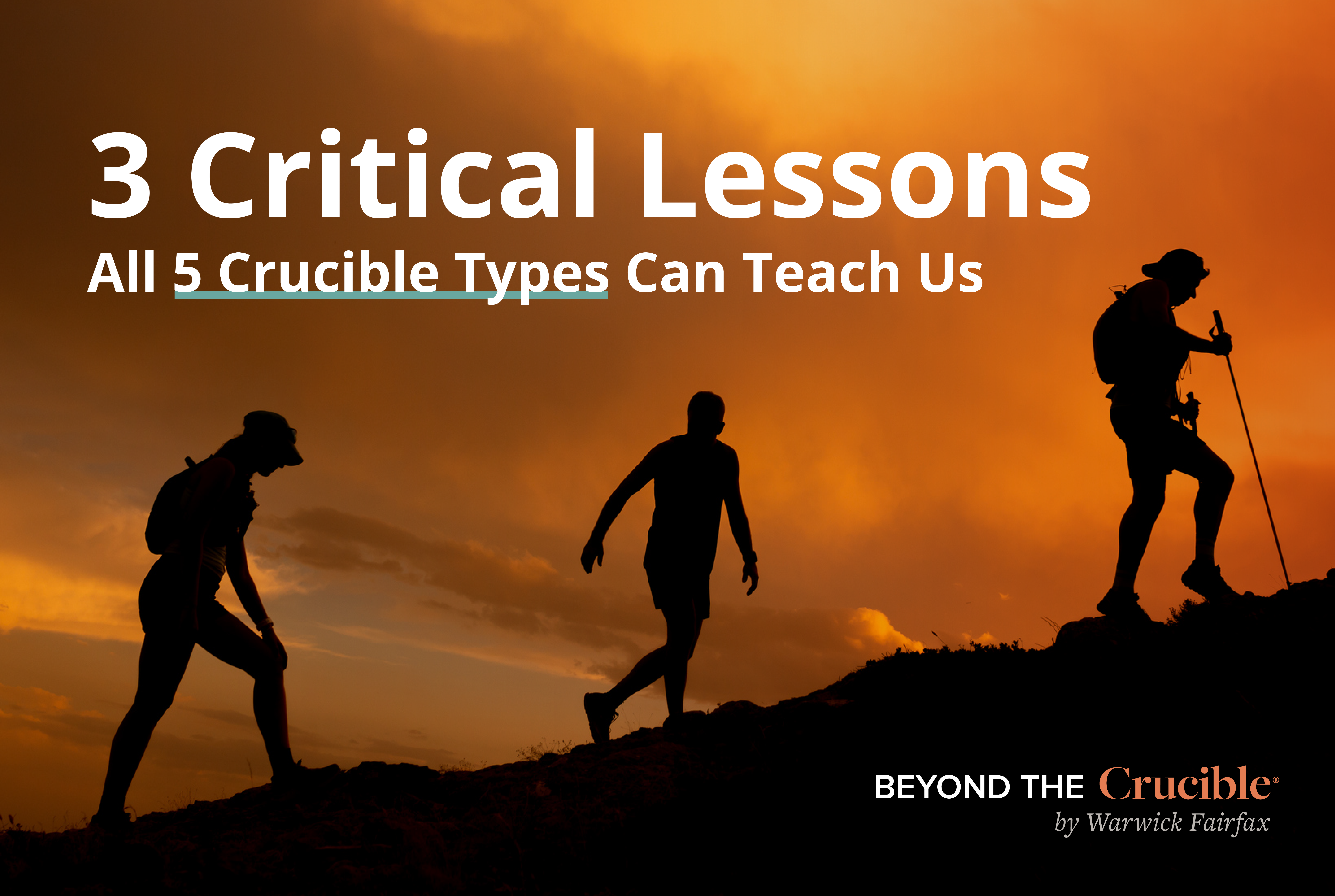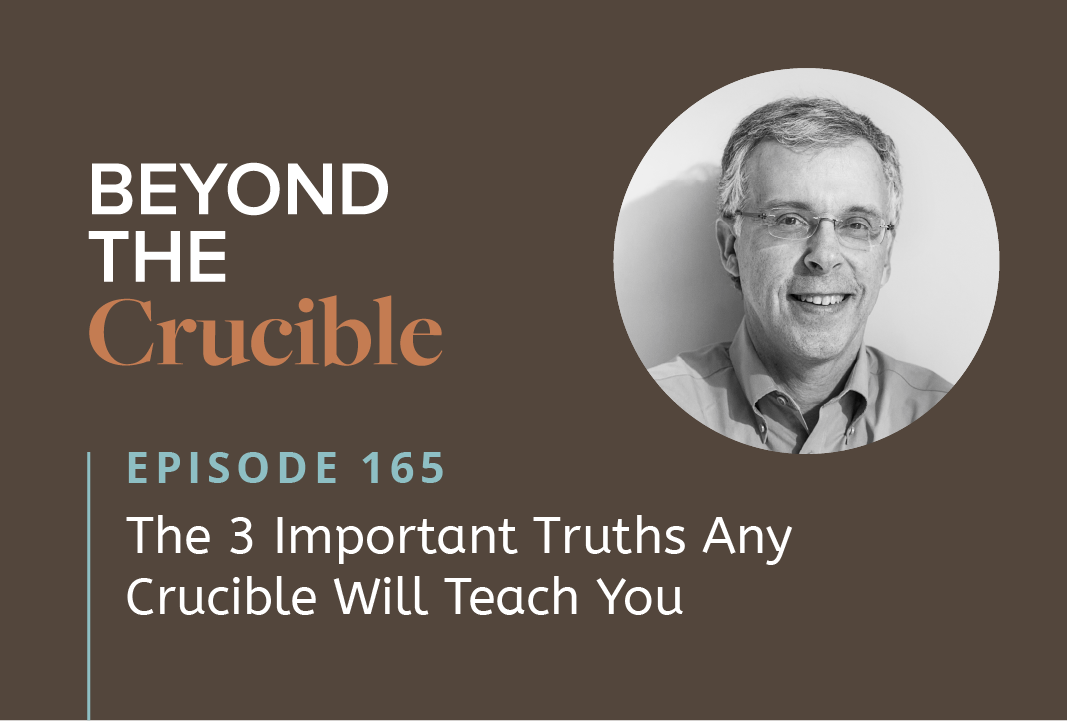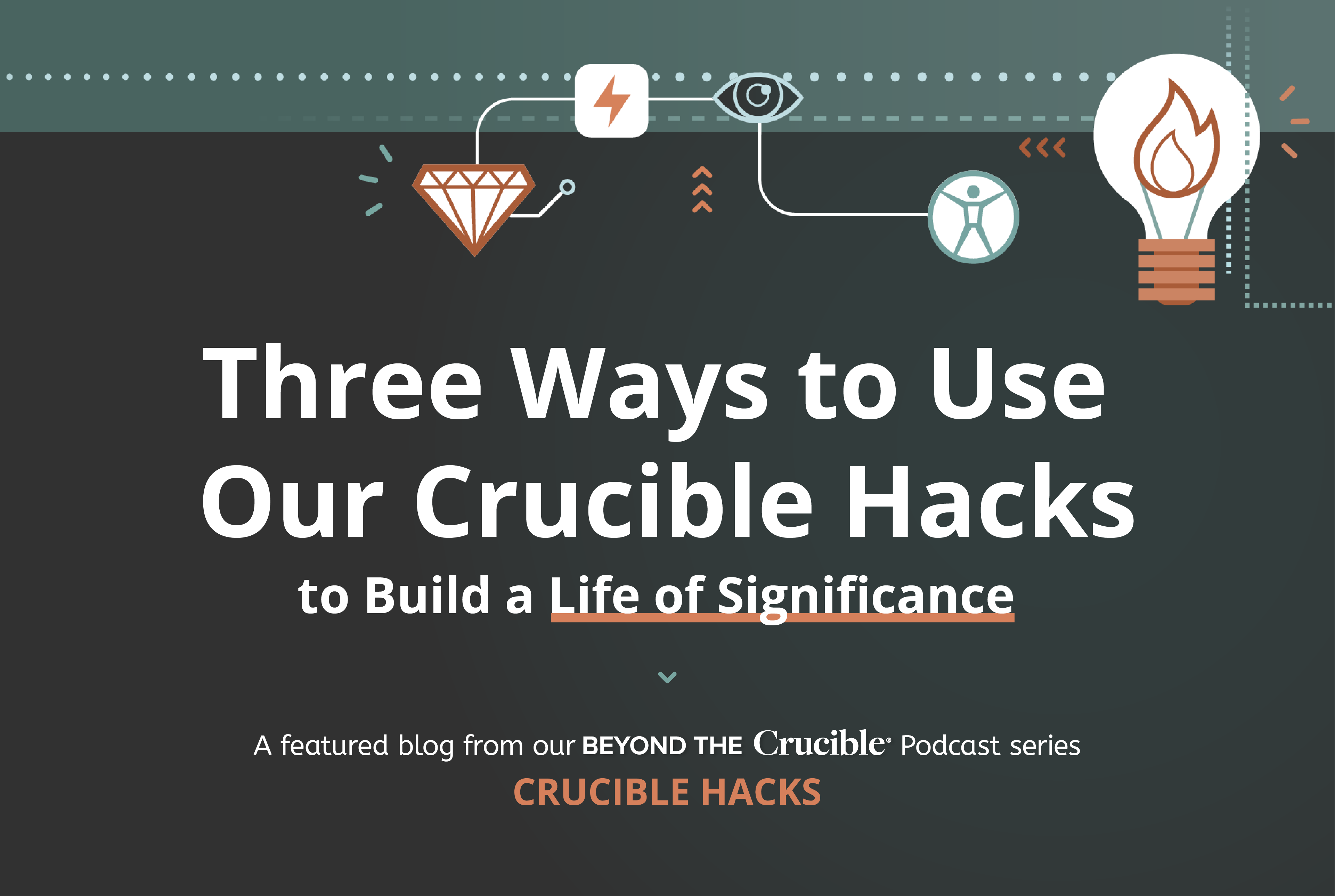
Earlier this month we wrapped up our special 10-part summer series, CRUCIBLE HACKS. Over its nine episodes we offered listeners “hacks” to help them identify the building blocks of their lives of significance. Then, in the tenth and final episode, we helped them get the most out of the hacks we discussed so they could get themselves on, and keep themselves on, the path to their own unique life of significance.
Those are big numbers. Meaningful numbers. But not unanimous numbers. They raise the very real possibility that at least a few of you reading these words might be among that 28 percent who would answer “no” to the survey question mentioned above. Which makes me think, in our mission to share with those who engage with us that their worst day doesn’t have to define them, how can you know if you’ve had a crucible? Three thoughts come to mind…


